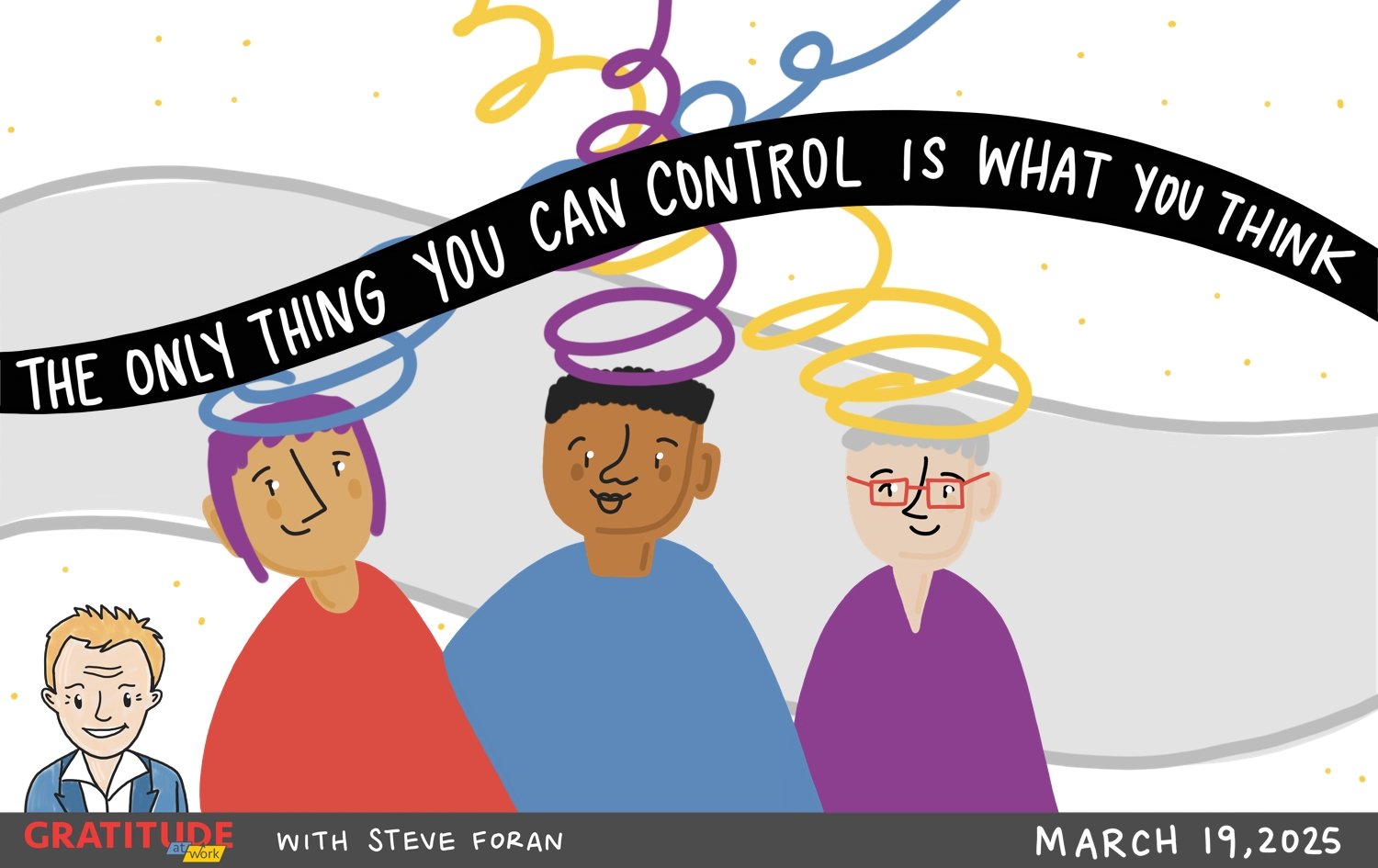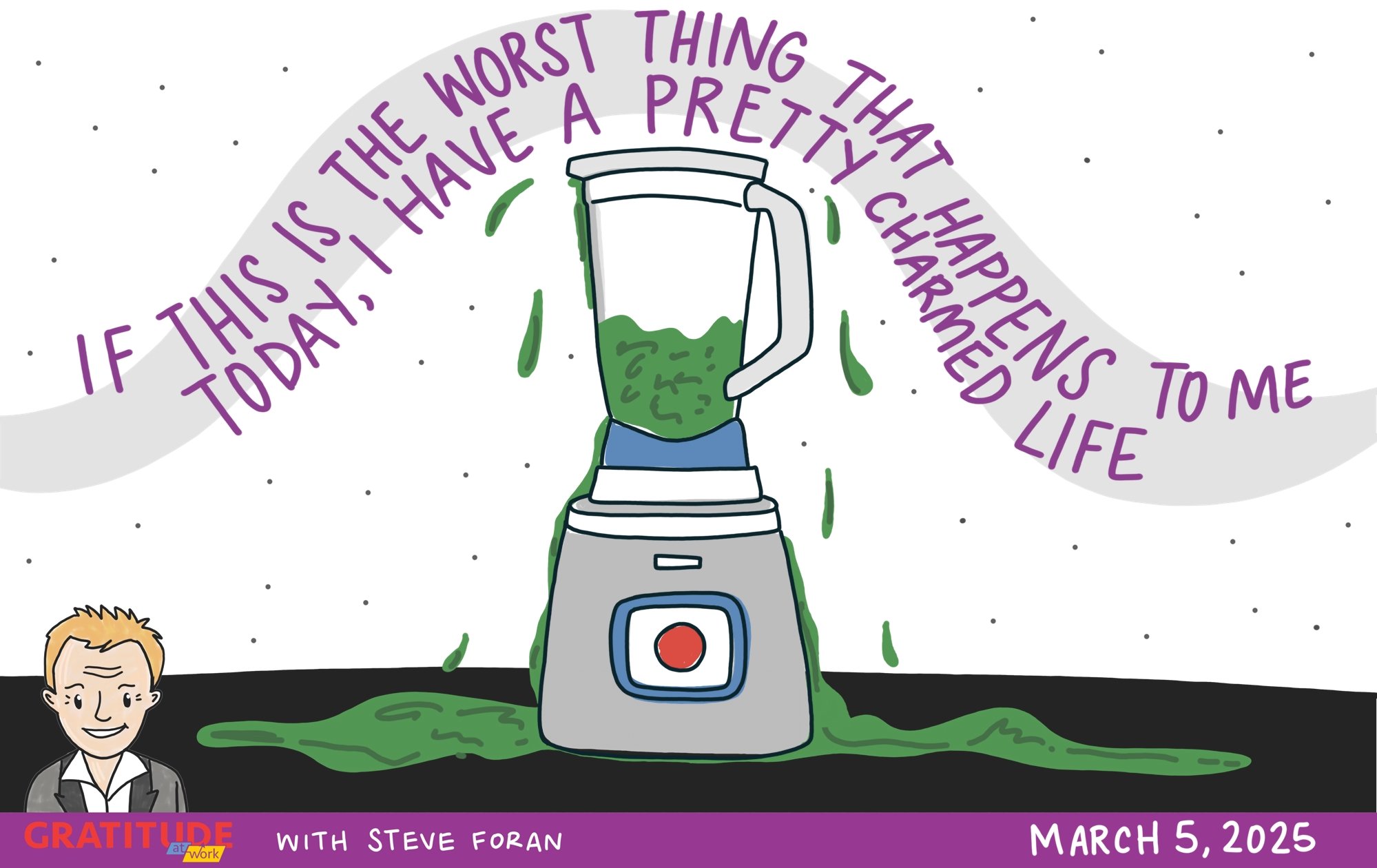Are you aware of your Vantage Point Bias ?
After a 12 day vacation with a friend, Lyn gets home tonight. I’m excited to see her and even though we’ve been texting daily, I can’t wait to hear all about her trip.
So for the past 12 days, it’s been Shangri-La for me—in our family that’s what we jokingly call the temporarily state of being single. The past couple weeks flew by and I completed a dozen or so “to-dos” on my list, ran, golfed and enjoyed extended periods of time alone—heck, I’d be fine if it went another week. I’m as grateful for my time home as for Lyn having time away.
I also realize that for many people, being alone is a regular everyday experience so the thought of being grateful for being alone might be the last thing on your mind. I call this Vantage Point Bias, which essentially means the way you, and everyone else experiences gratitude is derived from one’s unique vantage point. Vantage Point Bias applies to the music you listen to, the type of work that brings you joy, the movies you watch, the food you eat, the people you hangout with, the leisure activities you enjoy—its applies to everything !
Vantage Point Bias is part of the human condition so here are a few tips to deal with Vantage Point Bias:
Look for and find gratitude from your vantage point. When you make your gratitude conditional on “if I had their vantage point”, you are comparing, which in my personal experience leads to envy and ultimately misery. This doesn’t mean you can’t try to change your situation or work towards having a different vantage point. On the contrary, being grateful for one’s situation today leads to a greater sense of agency and control. In fact, being grateful is proven to help you achieve important life goals, such as new vantage points.
Don’t impute or assume that just because you’re grateful for something, that everyone else should be grateful for it. Gratitude is not about “should” or “obligation” or “inferred judgement”—not on you and not on anyone else. Can you hear me lecturing our kids at the dinner table, “You don’t like it ? You should be grateful to have food on your plate. There are people in the world who have nothing !” ? Not helpful.
Be sensitive that your gratitudes could possibly trigger someone with a different Vantage Point Bias. For example, when embellishing gratitude for my Shangri-La week, I’m aware that someone experiencing loneliness is probably going to interpret my gratitudes as cold, uncaring and self-absorbed.
So for you—simply be aware of your Vantage Point Bias, be kind and work on one of the tips.
BONUS TIP: My Vantage Point Bias over these past 12 days made me realize how I take my Queen for granted. For example, here’s a few things I’m especially grateful for today:
Meals shared
Lyn’s smoothies—they taste better than mine too
Her unique sense of humour—and that look on her face that she gives me
Listening to her and our daughter chat almost every morning at 9am—like clockwork
Meals that have pizzazz—she has a magical touch with food
The household chores she normally does—we split the chores but I really noticed her chores not getting done because I’ve grown blind to them being done
A good morning kiss
Her addictive use of emojis that resemble her—they make me giggle















